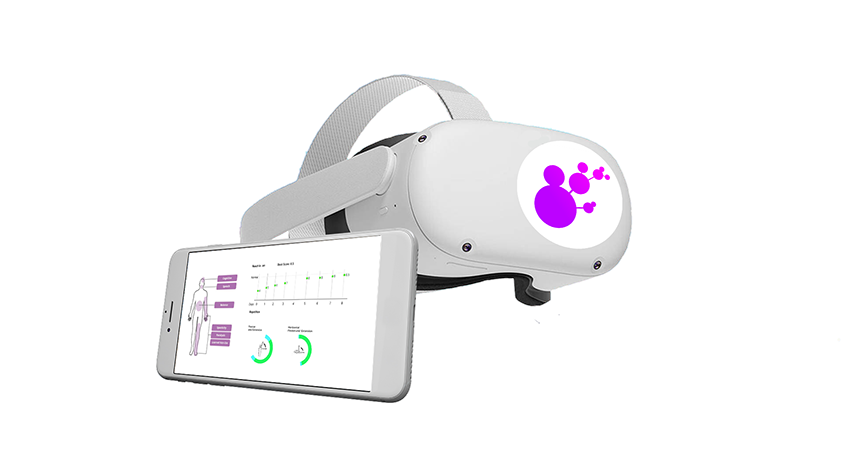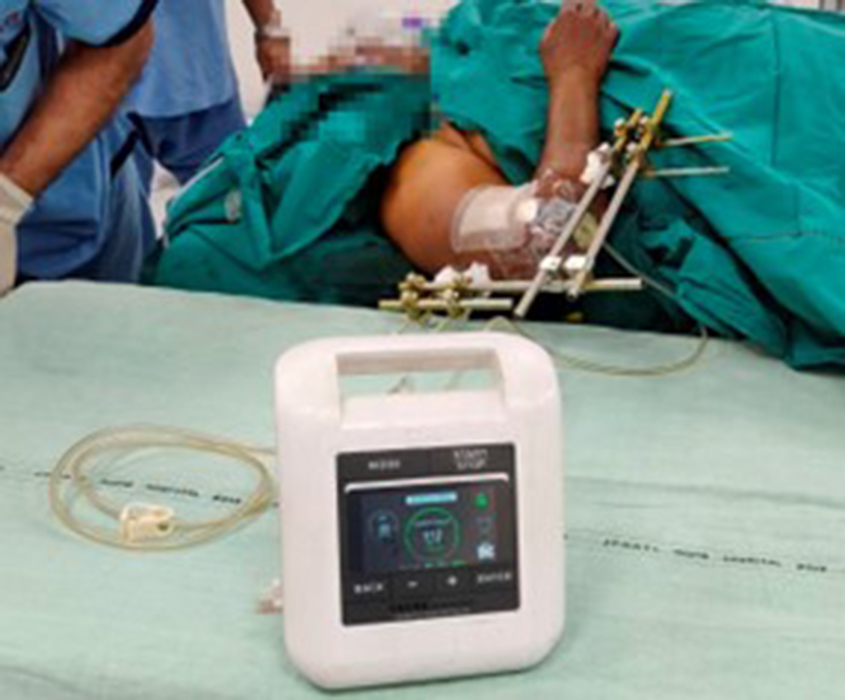Intellectual Property is a Catalyst for Investors in Med Tech Start-Ups
December 12, 2023
This article delves into the evolution of two Indian medical startups, Sparshmind Innovations and Inochi Care, through the lens of intellectual property (IP). It explores how their innovative medical technologies, ReMind Home and InoHeal, seek to revolutionize healthcare, and the role IP plays in their journey.
The story of innovation is not new to India. It is a country that has been able to leapfrog technologies, bypassing developmental stages to embrace solutions that fit its unique context. This trend has been recognized on the global stage, with the country rising in the World Intellectual Property Organization’s (WIPO) Global Innovation Index to the 40th position in 2023 from 81st in 2015. A vibrant startup ecosystem has taken shape in the country, with an impressive portfolio of over 108 unicorns valued at USD 340.80 billion and over 99,000 recognized startups driving this change.
In recent years, the healthcare and medical devices sectors in India have grown rapidly and a new generation of medical technology innovators have emerged. A number of young medical entrepreneurs are leveraging medical technology to develop innovative solutions to address global health challenges. As they move from the laboratory to the factory, intellectual property (IP) is playing a vital role in attracting investors to fund their start-ups. Patents help endorse the commercial viability of their medical inventions, thereby increasing investor confidence.
In this article, we examine the evolution of two medical start-up companies from an IP lens. Sparshmind Innovations has developed an Artificial Intelligence (AI) algorithm to provide a virtual home-based physiotherapy program to neuro patients called ReMind Home. Inochi Care has developed a low-cost medical device called InoHeal to treat wounds and Diabetic foot ulcers, which impact millions of patients today.
SparshMind

ReMind-Home provides greater access to rehabilitation services, allowing patients to engage in therapy under the watchful eye of a remote therapist. At its core, ReMind-Home comprises a virtual reality (VR) headset, a grasp trainer, and a secondary camera system, which together offer an immersive rehabilitation experience. The VR headset takes the patients into a controlled environment where they can perform exercises designed to aid recovery from neurological impairments. The grasp trainer is an apparatus that helps patients improve hand function and strength, critical for those recovering from conditions such as stroke. The camera system serves as the eyes of the therapist, allowing for remote monitoring and adjustment of the therapy protocol.
Inochi Care

Inochi Care’s products ranging from the Vacuum-Assisted Closure (VAC) device to an AI-powered wound assessment tool, addresses the pressing issue of chronic wounds. These wounds include diabetic foot ulcers and pressure sores, and pose a significant healthcare burden in India, leading to numerous complications and hospital readmissions. InoHeal, a product of Inochi Care, is an electronic medical device paired with a specially designed wound dressing that leverages biomaterials and nanotechnology to promote healing.
InoHeal’s functioning is based on Negative Pressure Wound Therapy (NPWT), where the device applies suction to the wound, helping to remove fluids, reducing swelling, and supporting the formation of new tissue. This speeds up healing, lowers the chance of additional infections, especially important for chronic wounds where infections can be a significant problem.
IP attracts investors
Both firms are committed to developing IP around their inventions. For them, IP is essential for attracting investment and bringing their products to market. They both filed for patents on their inventions and are actively working with IP experts to develop comprehensive IP strategies that will help them to protect their inventions and bring them to market successfully.
For Inochi Care, initiating an IP strategy from the outset was pivotal to their business plan. It offered them invaluable insights into market dynamics and established a foundation of confidence and trust with their investors and stakeholders. Shivani Gupta, co-founder of Inochi Care, stresses the importance of strategic foresight in determining the geographic scope of their IP rights, especially when considering international patents under the Patent Cooperation Treaty (PCT). Having IP protection can instill confidence and trust among investors. The firm not only holds product patents, industrial designs, and trademarks, but is also exploring opportunities for technology transfer and licensing agreements with strategic partners.
Similarly, SparshMind underscores the role of IP protection in attracting investment by safeguarding their innovation from unfair competition. Hari Krishnan, Director and Chief Executive Officer of SparshMind, affirms that their patent is vital in defending the company against potential infringements, safeguarding their innovative solutions. Despite challenges in safeguarding their AI algorithm, a key component of their product, they successfully overcame these obstacles with expert legal guidance. While committed to protecting their IP, SparshMind remains steadfastly focused on its broader mission of improving healthcare accessibility in India, recognizing that protecting their IP is not just a business necessity but also pivotal for societal benefit. By safeguarding their innovative ideas and products, SparshMind can open avenues for technology transfer and dissemination, which in turn can help advancements in healthcare by improving advanced options and greater accessibility.
The experiences of Inochi Care and SparshMind highlight the complex role of IP in steering innovative businesses towards success. Both firms remain steadfast in their commitment to enhancing healthcare accessibility in India. This dual focus of protecting IP while contributing positively to society illustrates their nuanced understanding of the role of IP in the healthcare ecosystem.
However, both inventors faced some challenges in protecting their inventions. For SparshMind, it was difficult to define all the unique and interdependent features of the AI Algorithm, virtual device, and its application in one patent. Hence, they had to file for additional patents. For Inochi Care, the challenge was to define which markets to file patents in and manage the high costs of patent application fees in different countries. The cost of filing a patent application in the United States, for example, is about USD 10,000, which can be prohibitive for a young entrepreneur in a developing country. Initially, both innovators received some financial support from their universities.
Ways forward
The journeys of Inochi Care and SparshMind in the realm of IP demonstrate an approach where securing IP is not just a route to commercial success, but also a means to encourage innovation and ensuring that the benefits reach the wider public, ultimately contributing to enhanced technology dissemination and healthcare accessibility. Their experiences underscore the critical role of IP in bolstering investor confidence, ensuring business longevity, and making positive contributions to society, setting a new benchmark for innovative businesses in the healthcare sector. IP protection can help health start-ups to attract new investors, prevent competitors from copying their inventions and generate revenue through licensing. As medical technologies evolve, local IP lawyers may need technical assistance in understanding the complex and evolving nature of medical technologies and small entrepreneurs may need financial assistance to register their IP in different countries.